The former two texts address couple of the most common arguments against ‘Wrongful Life’ claims. If you haven’t read them yet, it is recommended (though not necessary) to do so before reading this one, which addresses another common argument against ‘Wrongful Life’ claims, that is that they would put pressure on doctors to advise people to have abortions.
Just a quick reminder, a ‘Wrongful Life’ case is when a child sues for medical negligence a doctor or hospital for failing to diagnose and/or for not informing the child’s parents about a genetic disorder or foetal impairment when abortion was still an option and would have been chosen by the parents had they been informed. The claim in a wrongful-life suit is not that the negligence of the doctor was the cause of the impairment, but that by failing to inform the parents, the doctor is responsible for the birth of an impaired child who otherwise would not have been born and therefore would not experience the suffering caused by the impairment. The lawsuit is in respect of the damage caused by the impairment, this would generally include pain, suffering, and ‘disability costs’—the extra financial costs attributable to the disability, such as the cost of nursing care.
A quite common claim against ‘Wrongful Life’ suits is that it would put a lot of pressure on medical advisers to suggest abortions in cases of foreseen or a suspicion for impairments, out of fear of being sued for damages. That might indeed happen, but of course the creation of people with severe impairments merely to avoid doctors being pressured to encourage abortions out of fear of being sued, can never be morally justified.
Every breeding case is performed without the consent of whom who is supposed to be the protagonist of the action. But in ‘Wrongful Life’ cases the omission of consent is even more extreme as it is not even performed with the consent of the children’s parents, who had they been informed about their children’s impairments they would have had an abortion. And according to the above claim, these children should not even be compensated for their harm since that might put pressure on doctors to advise other people to do – what these people would have done had they been informed – an abortion.
Anyone who is not adherently opposed to abortions shouldn’t be so alarmed by a potential pressure put on doctors to advice it. And anyone who is adherently opposed to the creation of people with severe impairments is supposed to be in favor of such a pressure, in the aspiration that as many preconception and prenatal testing as possible are performed to avoid as many impairments as possible.
Of course I can’t speak for other antinatalists other than myself, but in spite that on the face of it the argument that ‘Wrongful Life’ claims disvalue the life of people with disabilities is supposed to be the more challenging one for us antinatalists, I feel most uneasy with this one. That is because on the one hand I have no doubt in my mind that these are cases of medical negligence as surly the doctors could have prevented the children’s suffering had they informed their parents. But on the other hand, parents, all parents, can’t always prevent the misery caused to their children, which statistically may be smaller and less probable than the cases at the center of this text, but sometimes can also be worse than these cases. Accidents and horrible events that take place along the way can turn someone’s life to be much worse than someone who was born with impairments. The life of a person who was born with impairments that luckily don’t involve chronic pain, can be much less worse than people who weren’t born with impairments but life somehow hit them hard along the way and turned their existence into an ongoing misery.
Life necessarily involves many unavoidable harms which none of them are necessary and people are forced to endure them only because their parents have decided to create them. Shouldn’t parents have some responsibility over their children’s harm?
Only because harms are so natural, mandatory and self-evident we treat them with acceptance. But they are unnecessary, and causing unnecessary harm is morally wrong.
Pain, frustration, sickness, boredom, fatigue, weariness and etc., are all certain and unavoidable, shouldn’t parents have some responsibility for not preventing it or getting consent from their children about it?
We don’t need genetic screenings to figure out that harms would occur. And the harmed is never informed, not to mention agrees to any of them before being created.
Some supporters of ‘wrongful life’ cases, claim that the plaintiffs need not to show the court that non-existence is a preferable option, but only to show that they suffer from reasonably foreseeable, and preventable harms caused by the defendants. Yet, isn’t it the case that everyone suffers from reasonably foreseeable, and preventable harms caused by the parents?
That is why although I agree that indeed there is a criminal negligence by the medical staff in these cases of procreation, there is a criminal negligence by the parents in every case of procreation.
While the doctors are guilty not of causing harm but of not preventing harm, the parents are guilty of both causing harm and of not preventing it. The parents are guilty of every harm they would personally and directly cause to their children, and for not preventing every harm that would be caused to their children by everything that is not them.
Every procreation is a case of criminal negligence by the parents because of all the misery that can happen to all people, at any given moment, and for all the misery that would be caused by all people at any given moment.
So I agree that the pressure put on doctors is unfair, but obviously not because of fear of more abortions, but because most of the liability must still be put on the parents. That is since the option of the doctors missing or not informing the parents about impairments is always there, not to mention the option of misery not caused by doctors’ negligence but by something else later in life, therefore it is still, and always, the parents’ responsibility.
Surly the doctors are guilty of criminal negligence for not adequately examining the possibility of impairments, or for not informing the parents about examined impairments, giving them the chance to have an abortion. But the bigger crime is that people are in the position of deciding whether to have an abortion or not in the first place. The major issue is the situation in which people can decide whether to create a person without that person’s consent, while running the risk of that person being miserable, without having any justified reason or purpose, and with that person being forced to endure pain, fear, sickness, frustration, regret, broken-heartedness, boredom, death, the fear of death, and etc.
The doctors’ actions are criminal because had they informed the parents these pregnancies wouldn’t have ended with a ‘wrongful life’ but with abortion. But every case of pregnancy that doesn’t end with abortion ends with a ‘wrongful life’ because every case of procreation is a very serious crime.
Procreation is a very serious crime because it is forcing on someone else the most important decision in that person’s life.
Procreation is a very serious crime because it is harming someone else without that person’s consent.
Procreation is a very serious crime because it is gambling on someone else’s life.
Procreation is a very serious crime because it is forcing someone into a needless, pointless, absurd, constant chase after meaning in a meaningless, needless, pointless, and absurd world.
Procreation is a very serious crime because it is forcing someone into a needless, pointless, absurd, constant chase after pleasures despite that pleasures are not really intrinsically good but addictive falsehood smoke screen illusions, which trap sentient beings in an endless, pointless and vain seek for more of them. Pleasures are preceded by wants which are the absence of objects desired by subjects. People want because they are missing something. They seek pleasures to release the tension of craving. Craving or wants, are at least bad experiences if not a sort of pain. Pleasures are short and temporary, and compel a preceding deprivation, a want or a need, which is not always being fulfilled, rarely to the desired measure, and almost never exactly when wanted. And even when desires are fulfilled, the cycle starts again.
Procreation is a crime because it is forcing someone into a situation where pain is the natural default state. If one would stop all action, pains would attack very shortly in the form of hunger, thirst, boredom, loneliness, physical discomfort, thermal discomfort and etc. Pain comes if one does nothing. Pleasures are unguaranteed, brief, and at some point become boring and ineffective. There is no chronic pleasure, but there is definitely chronic pain. And it is quite abundant. Pain is always guaranteed for every person born.
Procreation is a very serious crime because it is forcing someone into a needless, pointless, absurd, constant chase after happiness – despite that according to the “set point” theory of happiness (which many psychologists find convincing nowadays), mood is homeostatic and we all have a fixed average level of happiness. That means that even desirable things which people do manage to obtain, are satisfying at first, but eventually people adapt to them and return to their “set points”. Therefore people usually end up more or less on the same level of wellbeing they were before. That’s why some argue that people actually run on hedonic treadmills.
Procreation is a very serious crime because there is a very realistic probability that a person forced into existence would be miserable. There is not even a theoretical possibility that a person forced into existence won’t be harmed at all. Creating someone who would definitely be harmed and the only variable is to what extent (with the potential of extreme misery), must be morally prohibited. Given that the motives are never the interests of the to-be born person, it is not only morally flawed, it is selfish, egocentric, arrogant, and careless.
Procreation is a very serious crime because the ample evidences that bad experiences are more important than good ones, not only serve as a proof that good experiences are at least not as good as bad experiences are bad (if not proving that bad experiences almost always outweigh the good ones), but how horrible life actually and inherently is. Basically, pain and other negative experiences, increase the fitness of individuals by enhancing their respondence ability to threats to their survival and reproduction. It has a crucial adaptive function. Existing sentient beings are tortured by evolutionary mechanisms which their only point is that additional sentient beings would exist, regardless of any of those beings’ personal wellbeing. It is a pointless, frustrating and painful trap.
Procreation is a very serious crime because it is treating someone as a means to others’ ends. People create new persons to serve their own purposes such as to take care of them when they are old, to save their decaying relationships, to continue the family line, to please their parents, to ease their boredom, to fill their empty and pointless lives with a sense of meaning and purpose, to feel powerful because someone is totally depended on them, to feel needed and important, to ease their loneliness, to hush their biological impulses, to boost their ego, to create an immortality illusion, to take care of society’s elderly, to be loved even if that love is temporary and conditioned and a result of imprinting and not of free choice and objective assessments, to continue the human race, to feel normal, to make them look normal to others. And creating extremely emotionally and physically vulnerable persons as means to others’ ends is a very serious crime.
Procreation is a very serious crime because it diverts energy, time and resources from persons who already exist and are in need, to those who needed nothing, were deprived of nothing, and harmed by nothing before they were forced into existence.
Procreation is a very serious crime because life is a constant Sisyphean struggle just to survive a life no one chose. Everyone is bound to overcome needless frustrations, disappointments, pains and discomforts.
Procreation is a very serious crime because people are creating new persons for their own selfish sake and count on that their children would adapt and adjust to the difficulties of life, just like everybody else does. Only that not everyone manages to adapt to life’s difficulties, and even if everyone did, why condemn people to such a state in the first place? Why knowingly create someone who would have to adjust to bad situations, instead of easily avoiding any bad situation that person would be forced to endure coming to existence? Why consciously choose to throw other people into the position in which they must always compromise and never get everything they want?
Procreation is a very serious crime because lives not worth living is not a theoretical possibility, it is a certainty. People whose lives are not worth living would be born, and the chances for that happening are renewed with each procreation. Misery has no quota. The only way to avoid this worse off option is by not procreating.
Procreation is a very serious crime because there is no way to retroactively undo it, and there is also not an easy and harmless option to end one’s existence by carrying out suicide. Many people are trapped in horrible lives without a truly viable option to end it because they are too afraid to kill themselves, or because they don’t want to hurt the ones who care about them if they do, or are too afraid that if they won’t succeed in killing themselves they would be socially stigmatized in the better case, or coercively hospitalized in a worse one, or harm themselves so severely while trying to kill themselves that they would end up even worse than they were. Trapping people in the impossible situation of not wanting to live but not wanting to kill themselves so not to hurt others or because they are afraid to kill themselves for any of the mentioned reasons, is a very serious crime.
Procreation is a very serious crime because it forces someone to die, and to fear of death for most of one’s life.
Procreation is a very serious crime because people can choose whether to create sentient creatures who would necessarily suffer from many bad experiences that they have necessarily not given consent to, and with no guarantee whatsoever that the created persons won’t be very miserable, yet they choose to do so anyway. They choose that other persons would experience pain, frustration, fear, boredom, they choose they would get disappointed, sick, rejected, and humiliated. Yes, that person may enjoy parts of life too, but that is not mandatory, while it is mandatory that this short list of bad things will happen at some point, at least once in each person’s life. Despite that pleasure is optional, happiness isn’t even optional, and suffering is inevitable, people criminally choose to willingly force sentient creatures into this condition.
And finally, more than anything, what makes procreation such a serious crime, is that it is forcing enormous needless and pointless suffering on thousands of individuals vulnerable to harms. While the person created is one morally relevant creature which would be harmed by being created, each person created is hurting infinitely more morally relevant creatures during a lifetime.
References
Begeal, Brady “Burdened by Life: A Brief Comment on Wrongful Birth and Wrongful Life.” Albany Gov’t Law Review Fireplace Blog. 2011. Accessed Jun 1, 2012. http://aglr.wordpress.com/2011/03/28/burdened-by-life-a-brief-comment-on-wrongfulbirth-and-wrongful-life
Benatar D (2006) Better never to have been: the harm of coming into existence. Clarendon, Oxford
Botkin Jeffrey R., “Ethical Issues and Practical Problems in Preimplantation Genetic Diagnosis,” Journal of Law, Medicine & Ethics 26, no. 1 (1998): 17-28.
Ettorre Elizabeth, “Reproductive Genetics, Gender and the Body: ‘Please Doctor, may I have a Normal Baby?’,” Sociology 34 no. 3 (2000): 403-420.
Gardner, M. (2016). Beneficence and procreation. Philosophical Studies; 173(2) 321-336
Giesen Ivo, “Of wrongful birth, wrongful life, comparative law and the politics of tort law systems,” Journal of Contemporary Roman-Dutch Law 72 (2009): 257-273.
Harris John, “The Wrong of Wrongful Life,” Journal of Law and Society 17, no. 1 (1990): 90.
Hensel Wendy F., “The Disabling Impact of Wrongful Birth and Wrongful Life Actions,” Harvard Civil RightsCivil Liberties Law Review 40 (2005): 141-195.
Jennifer Ann Rinaldi, “Wrongful Life and Wrongful Birth: The Devaluation of Life With Disability,” Journal of Public Policy, Administration and Law, 1 (2009): 1-7; Liu, “Wrongful life: some of the problems.”
Kumar R (2015) Risking and wronging. Philos Public Aff 43(1):27–51
Liu, Athena N. C. “Wrongful life: some of the problems.” Journal of Medical Ethics 13 (1987): 69-73.
Loth Marc A., Courts in quest for legitimacy; the case of wrongful life (Rotterdam: Erasmus University, 2007).
Mackenzie Robin. From Sanctity To Screening: Genetic Disabilities, Risk And Rhetorical Strategies In Wrongful Birth And Wrongful Conception Cases Feminist Legal Studies 7: 175–191, 1999
Morreim E. Haavi, “The Concept of Harm Reconceived: A Different Look at Wrongful Life,” Law and Philosophy 7, no. 1 (1988): 3-33.
Morris Anne and Saintier Severine, “To Be or Not to Be: Is That The Question? Wrongful Life and Misconceptions,” Medical Law Review 11 (2003): 167-193.
Murtaugh Michael T., “Wrongful Birth: The Courts’ Dilemma in Determining a Remedy for a Blessed Event,” Pace Law Review 27, no. 2 (2007): 243
Parfit, Derek. Reasons and Persons. (Oxford University Press 1986)
Ramos-Ascensão José, “Welcoming the more vulnerable: do parents have a right to selection of a healthy child?” Europeinfos – Christians perspectives on the EU, 2012: 5, accessed Aug 4, 2013, http://www.comece.eu/europeinfos/en/archive/issue153/article/5140.html
Robertson John A., “Extending preimplantation genetic diagnosis: the ethical debate – Ethical issues in new uses of preimplantation genetic diagnosis,” Human Reproduction 18, no. 3 (2003): 465-471
Sàndor Judit, “From Assisted to Selective Reproduction: Through the Lens of the Court,” The Faculty of Law – Norway, 2013: 14, accessed Jan 14, 2014, http://www.jus.uio.no/english/research/news-andevents/events/conferences/2014/wccl-cmdc/wccl/papers/ws7/w7-sandor.pdf
Savulescu J. Procreative Beneficence: why we should select the best children. Bioethics 200115413–426
Seana Valentine Shiffrin. Harm And Its Moral Significance. Legal Theory, Available on CJO 2012 doi:10.1017/S1352325212000080
Sheldon Sally and Wilkinson Stephen. Termination of Pregnancy for reason of foetal disability: Are there grounds for a special exception in Law? Medical Law Review, 9 (2) pp 85-109
Steinbock, Bonnie, Life Before Birth (New York: Oxford University Press, 1992)
Steinbock Bonnie & McClamrock Bonnie When is Birth Unfair to the Child? University at Albany, SUNY January 1994
Steininger Barbara C., “Wrongful Birth and Wrongful Life: Basic Questions,” Journal of European Tort Law 2 (2010): 125-155
Stretton, Dean. “The Birth Torts: Damages for Wrongful Birth and Wrongful Life.” Deakin Law Review 10, no. 1 (2005): 319-364
Vesta T. Silva (2011) Lost Choices and Eugenic Dreams: Wrongful Birth Lawsuits in Popular News Narratives, Communication and Critical/Cultural Studies, 8:1, 22-40, DOI: 10.1080/14791420.2010.543985
Webber Jay, “Better Off Dead?” First Things, (2002): 10
Weinberg, Rivka. Existence: who needs it? The non-identity problem and merely possible people
2012 Bioethics ISSN 0269-9702

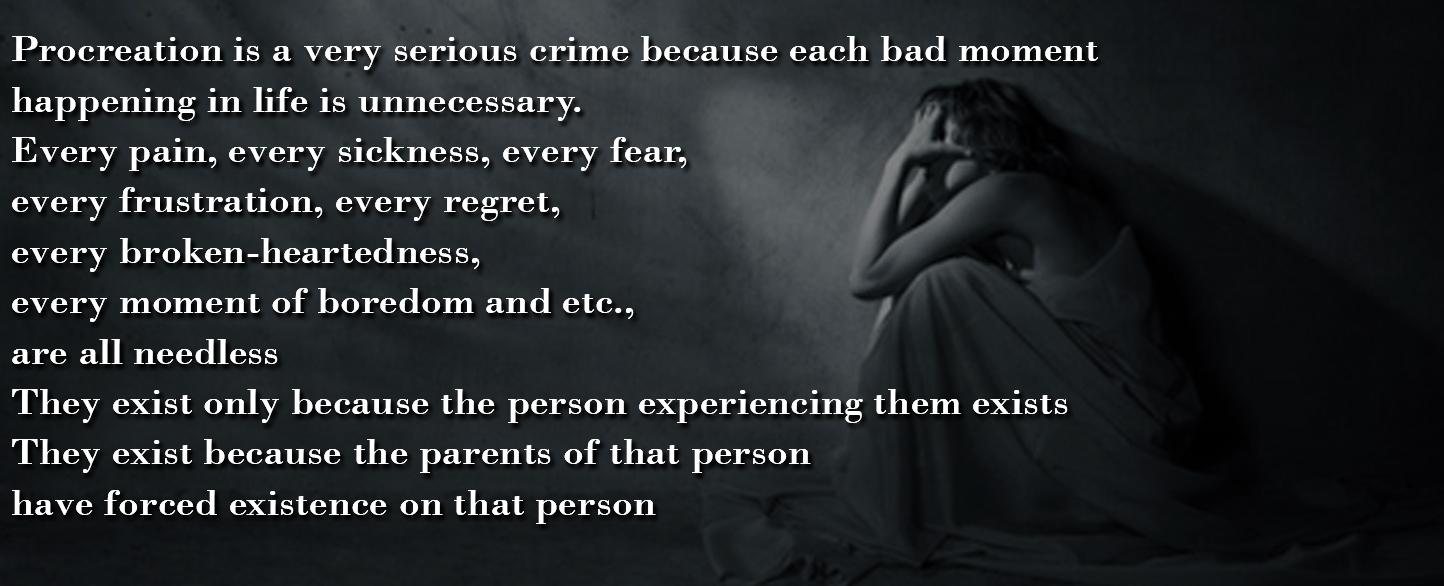
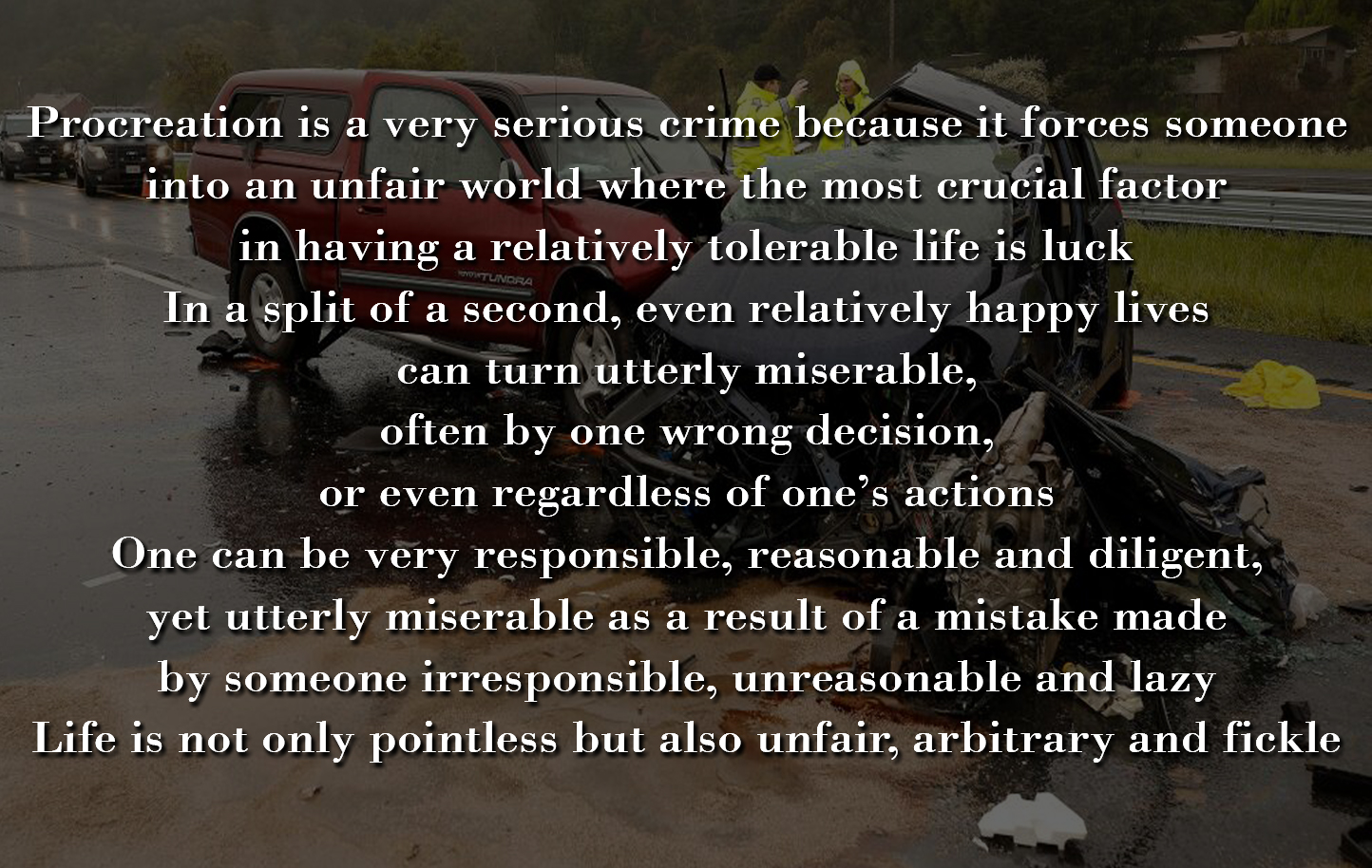
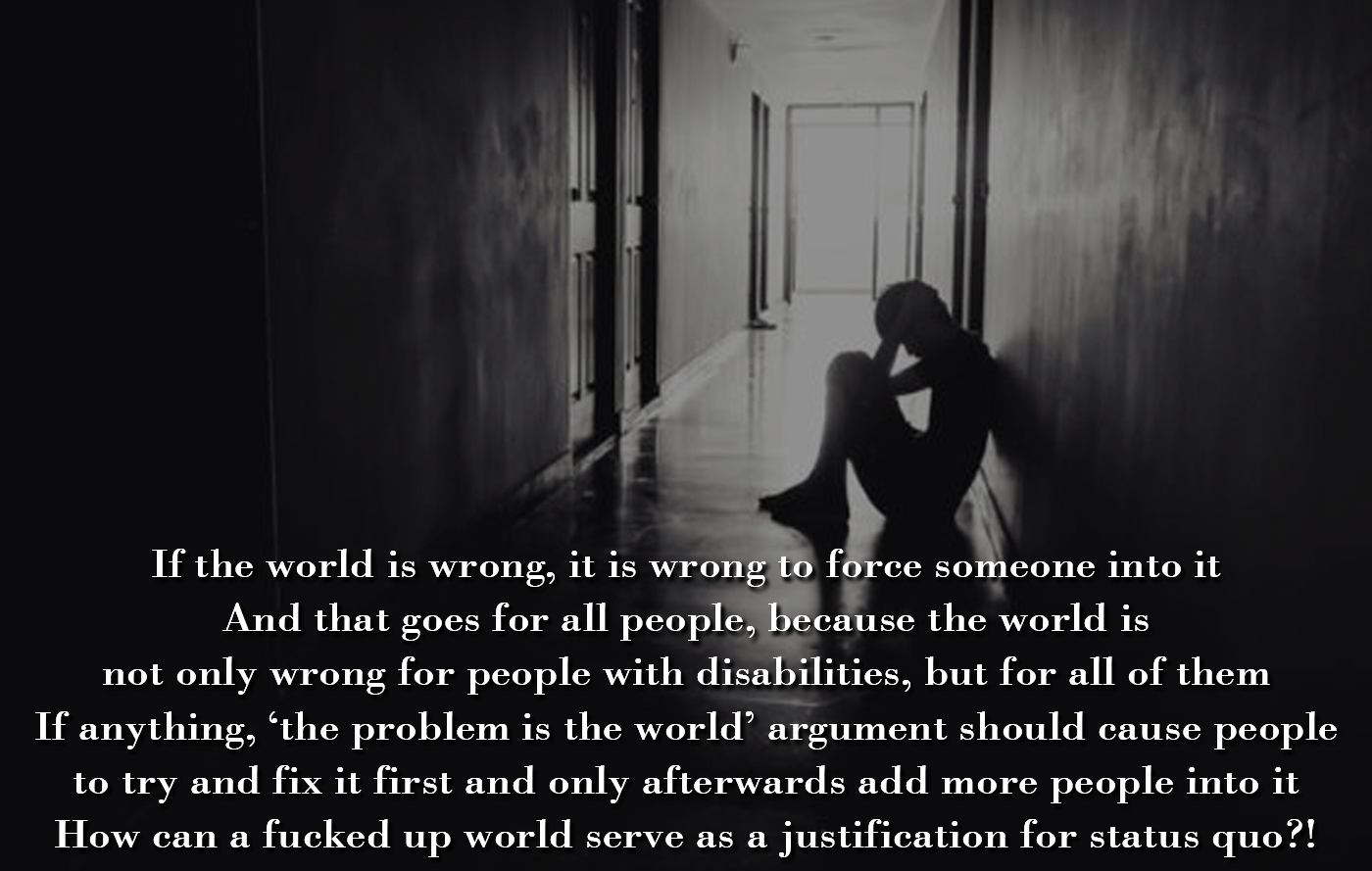
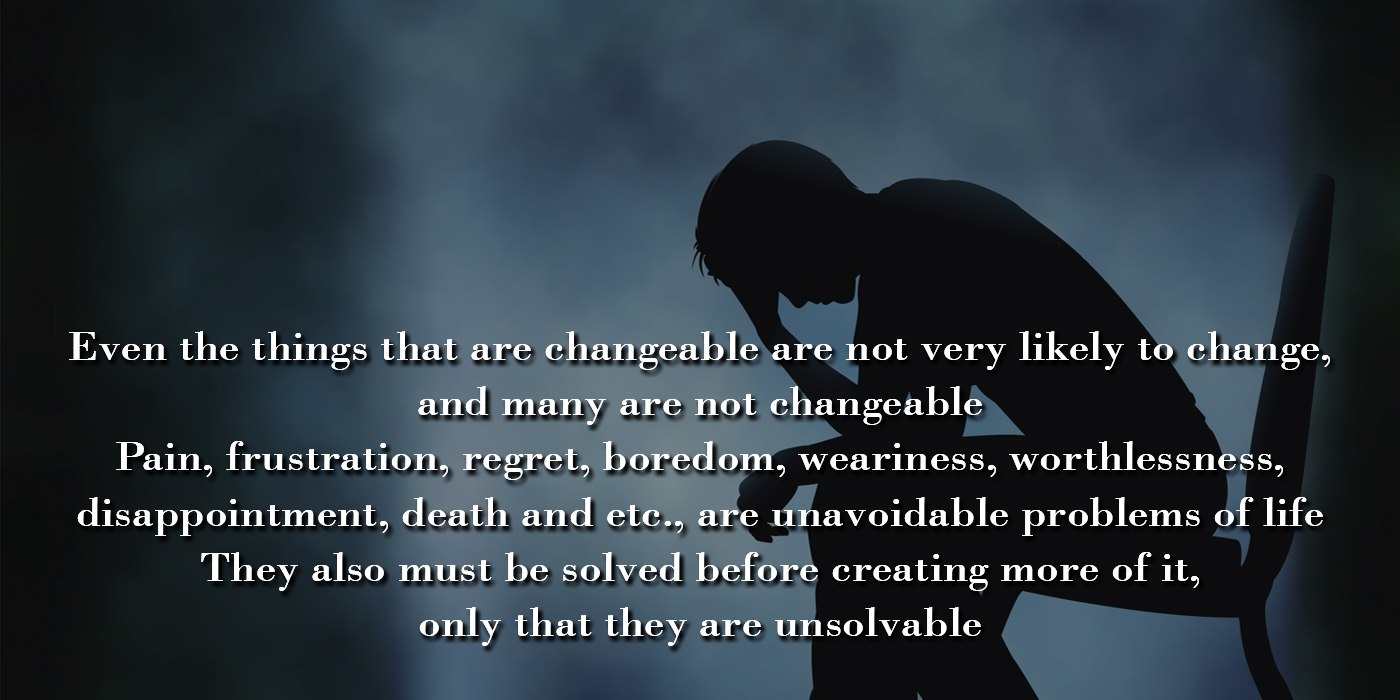
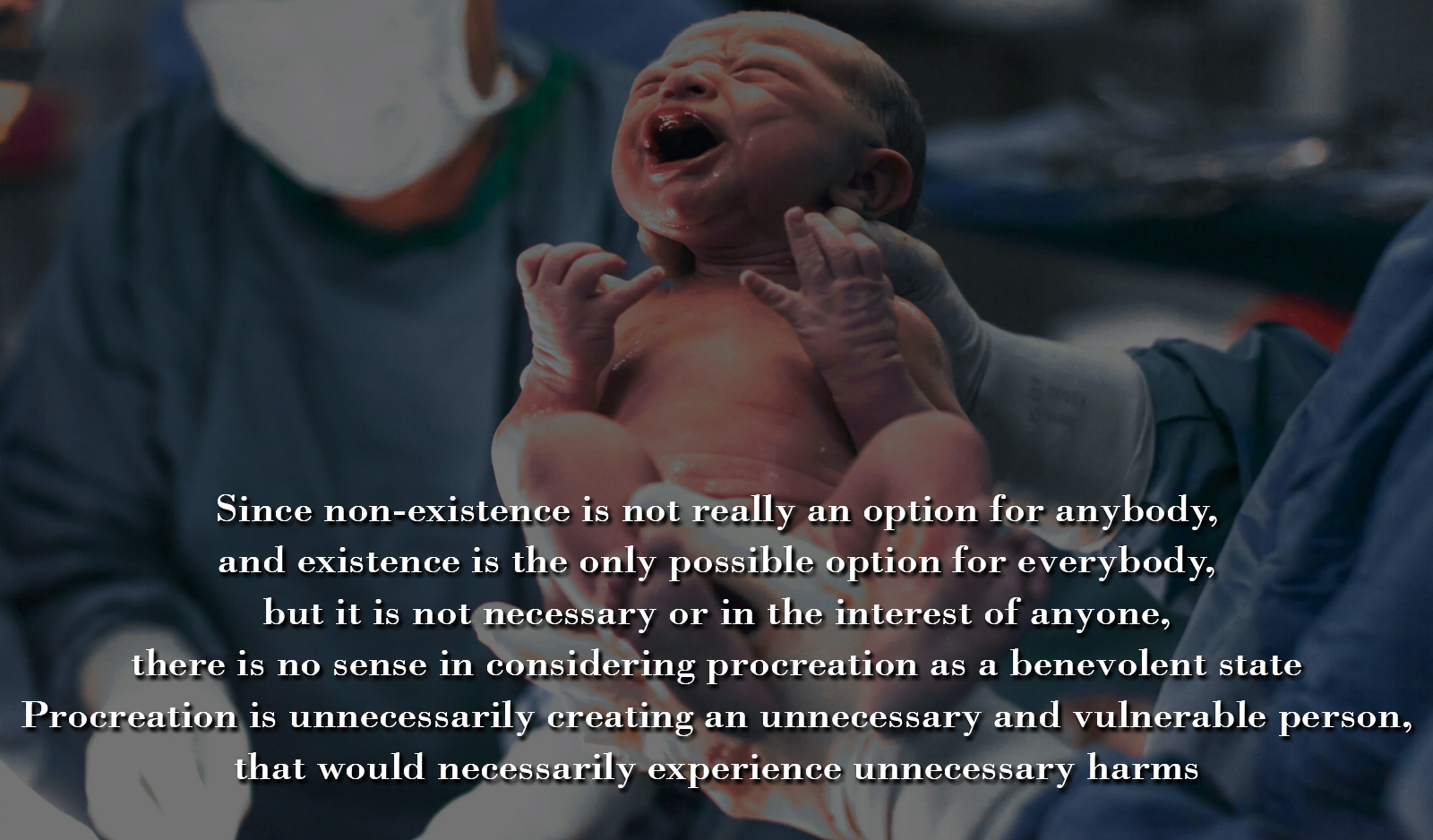
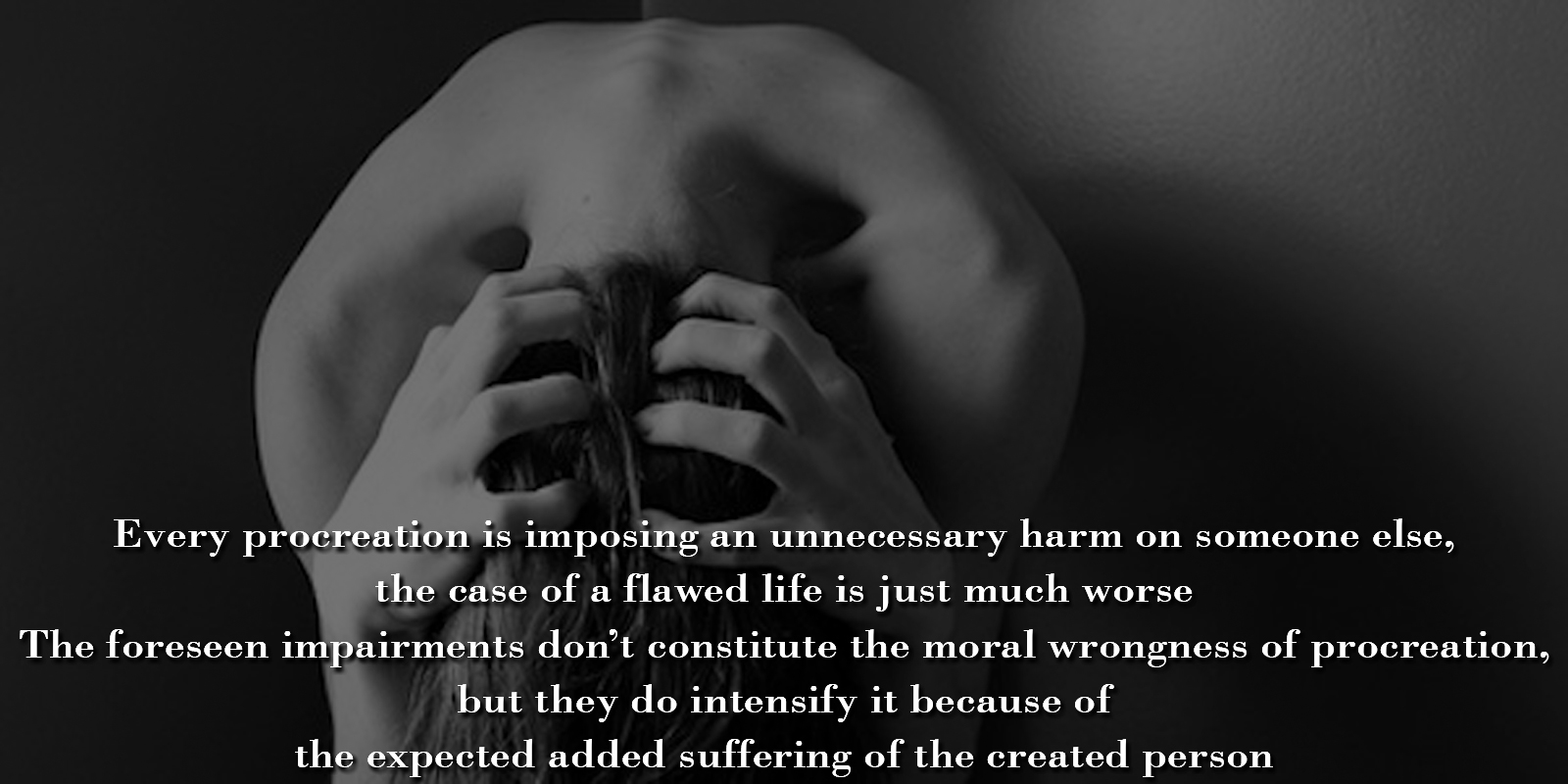

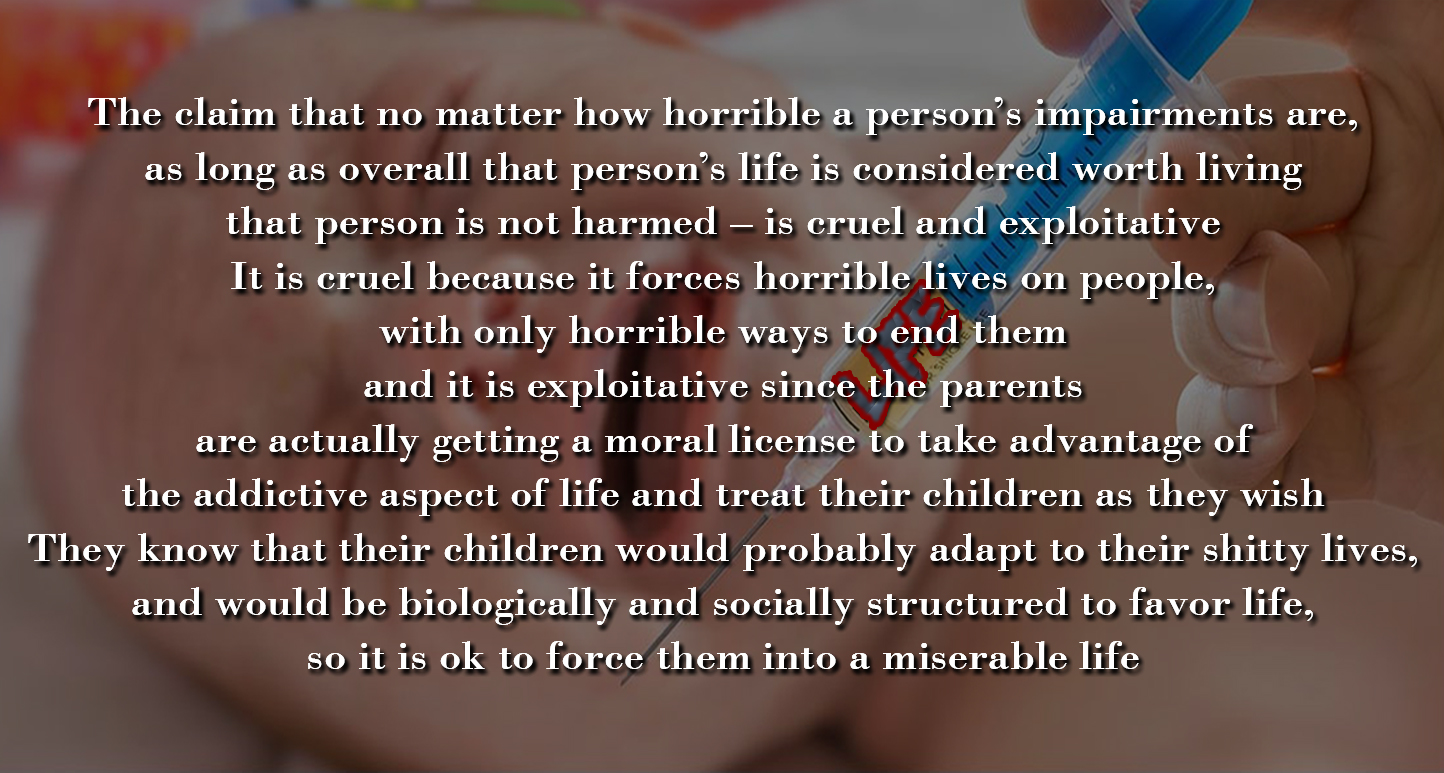
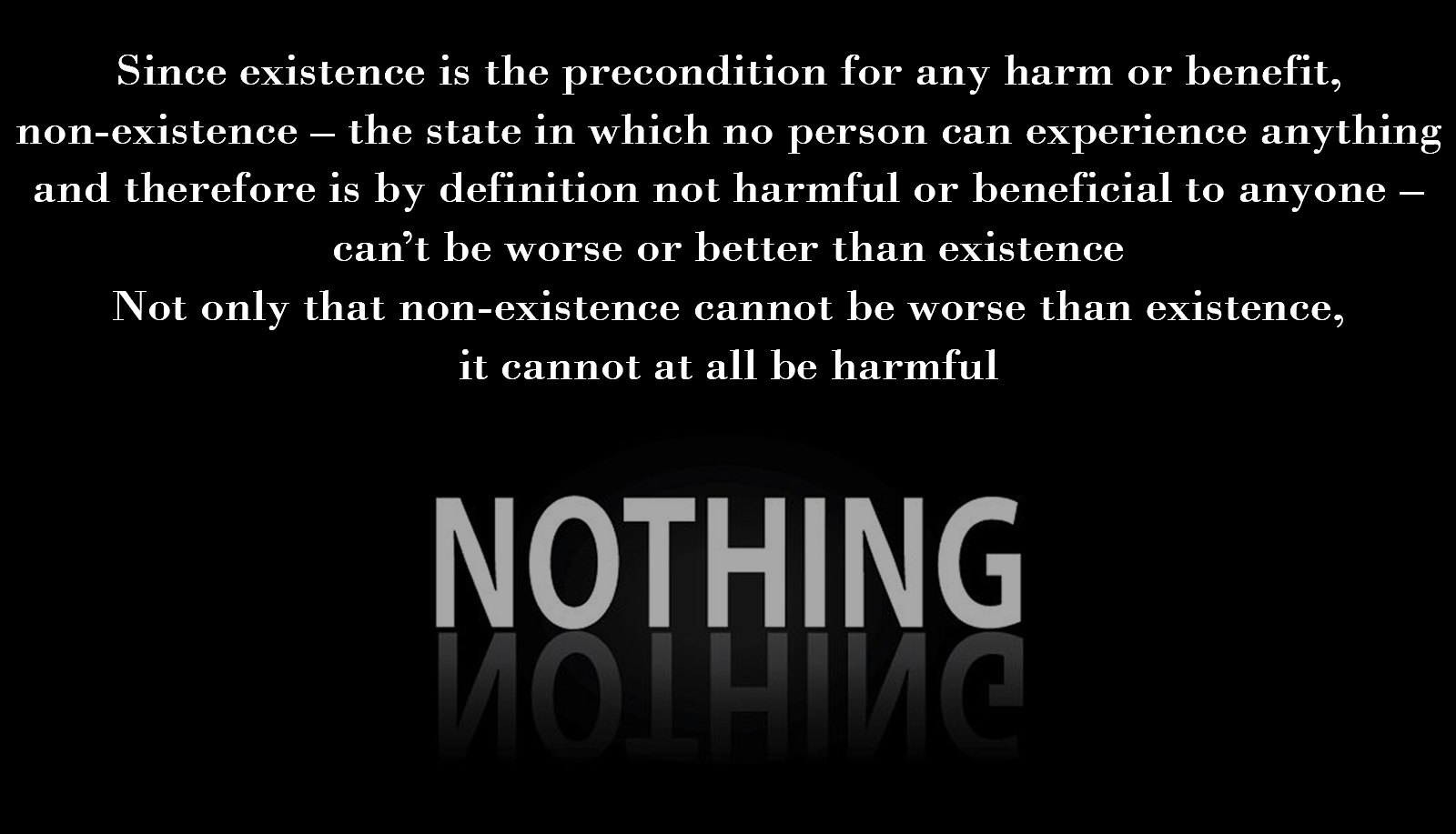
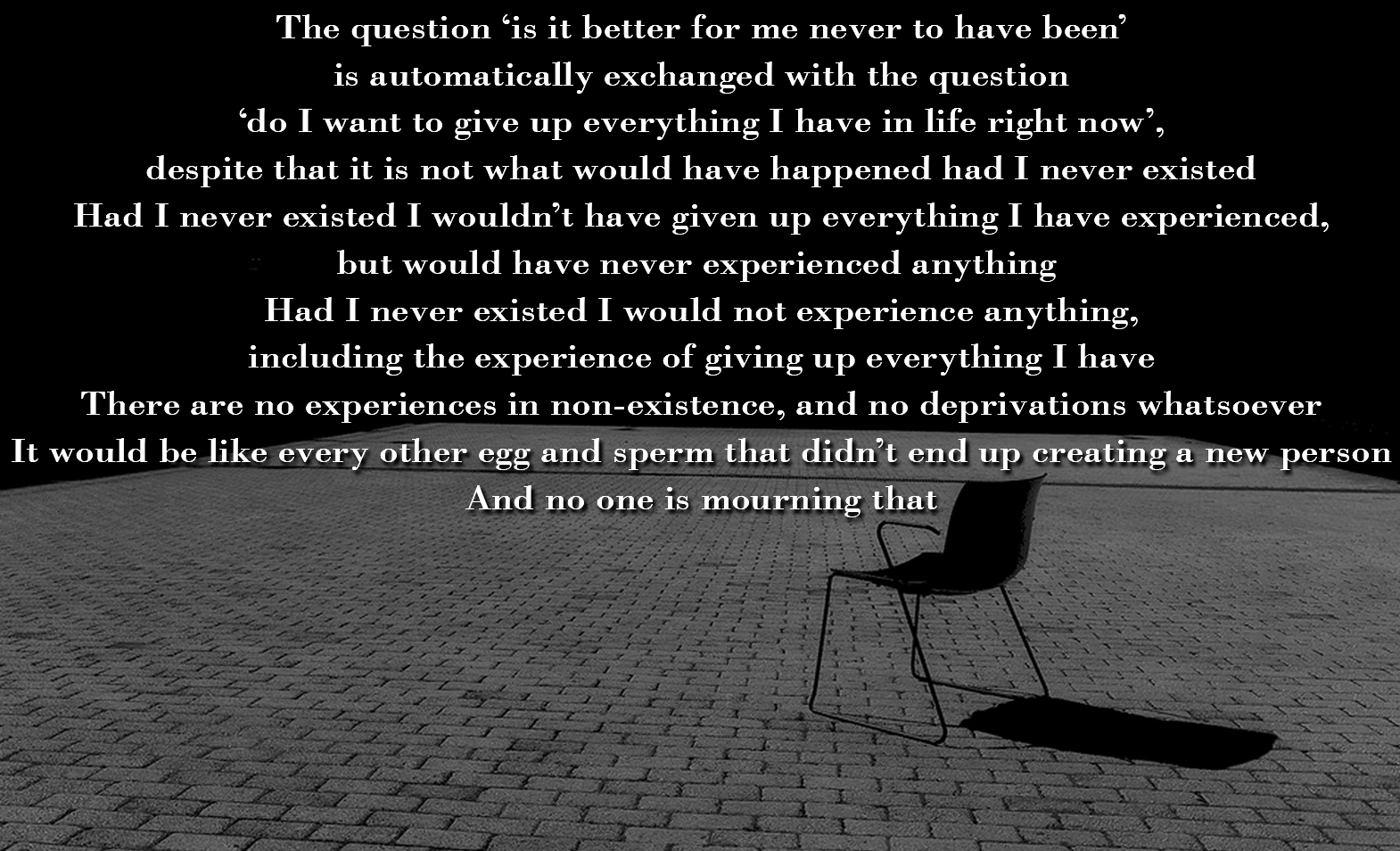
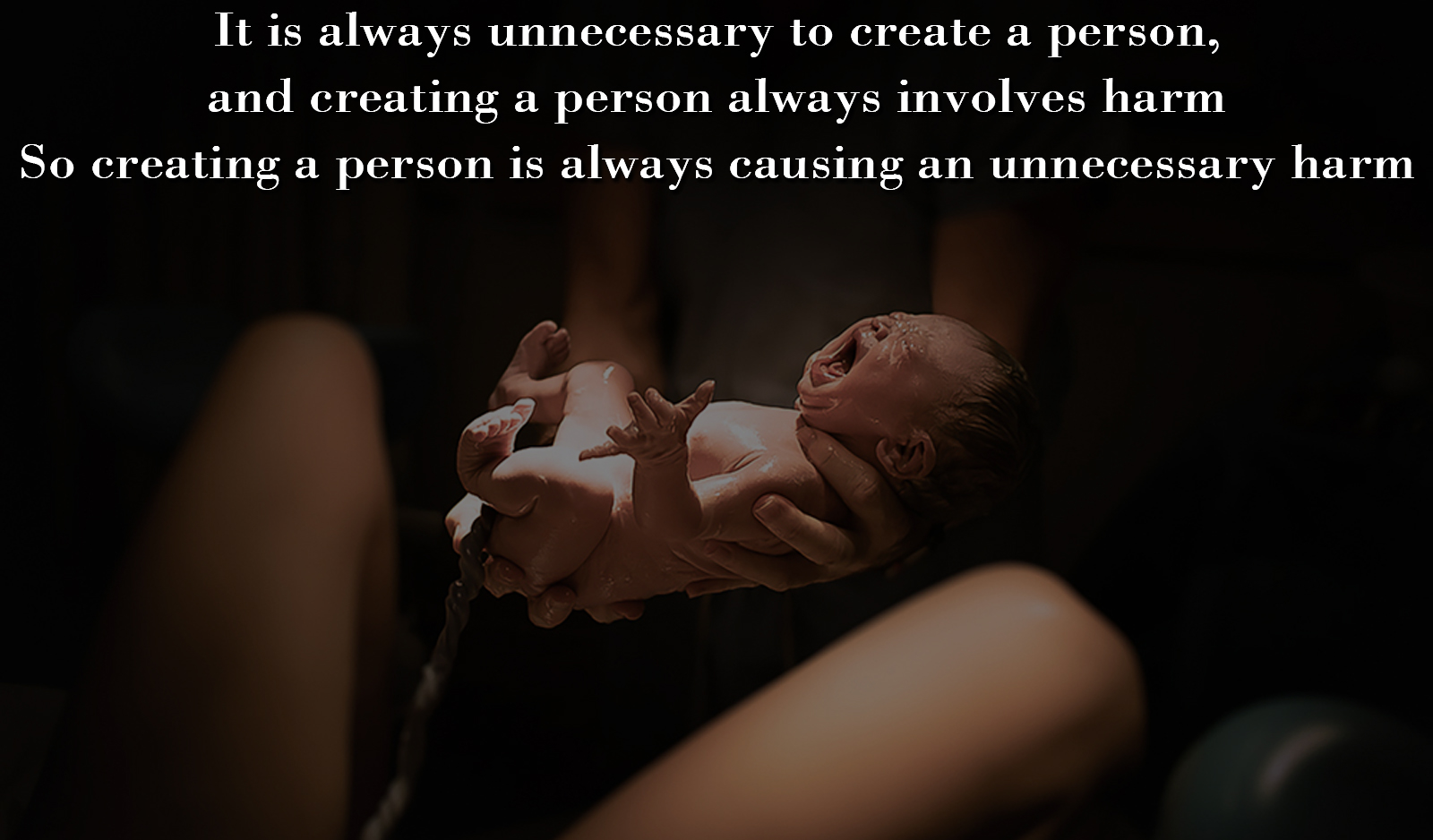



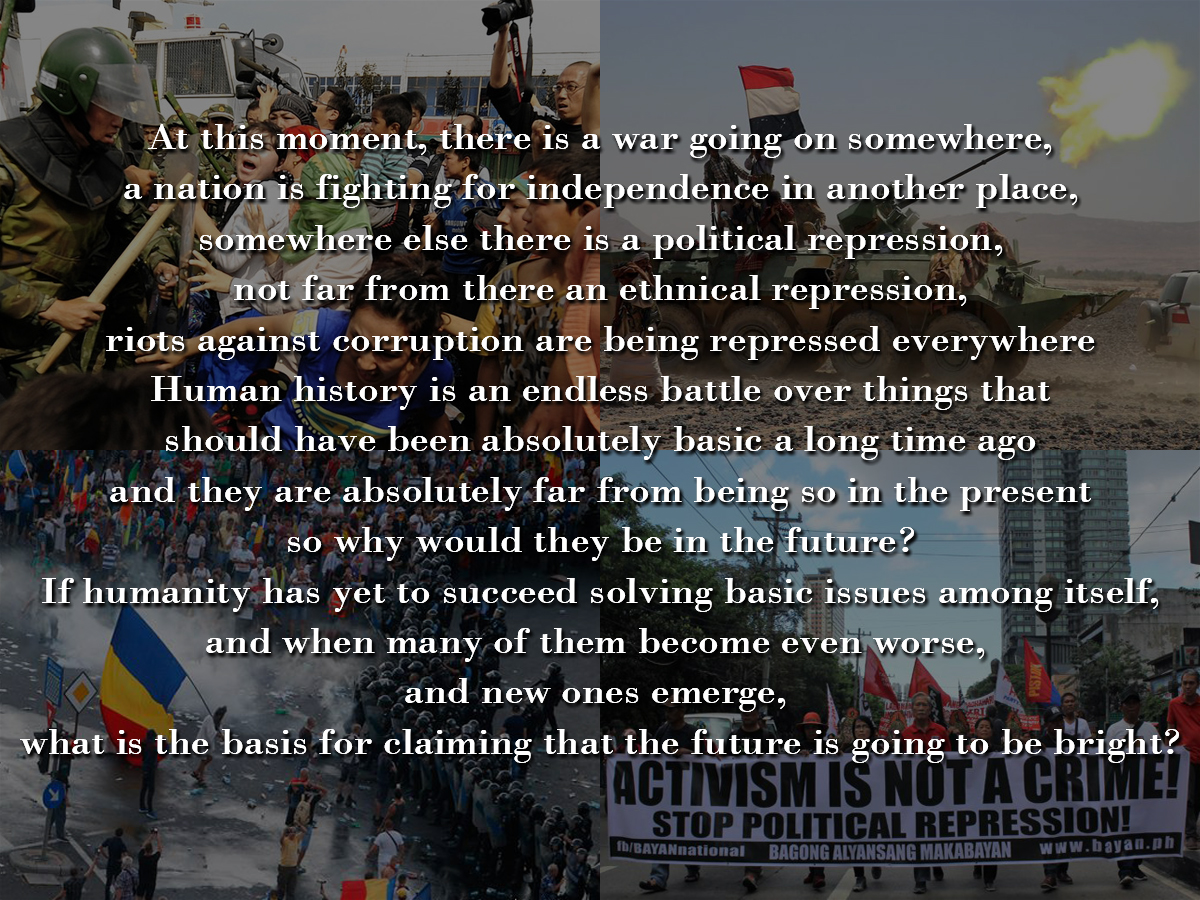

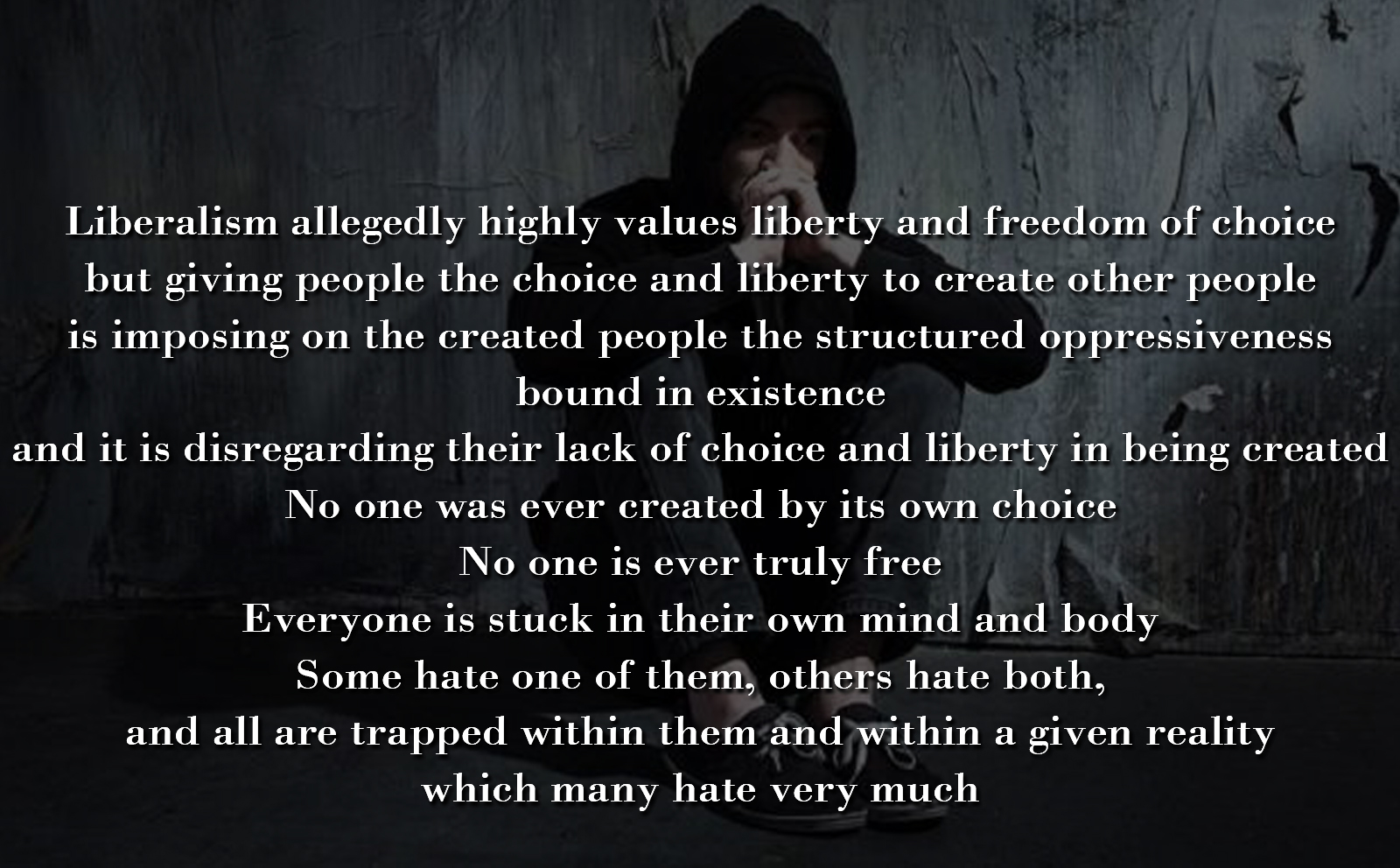
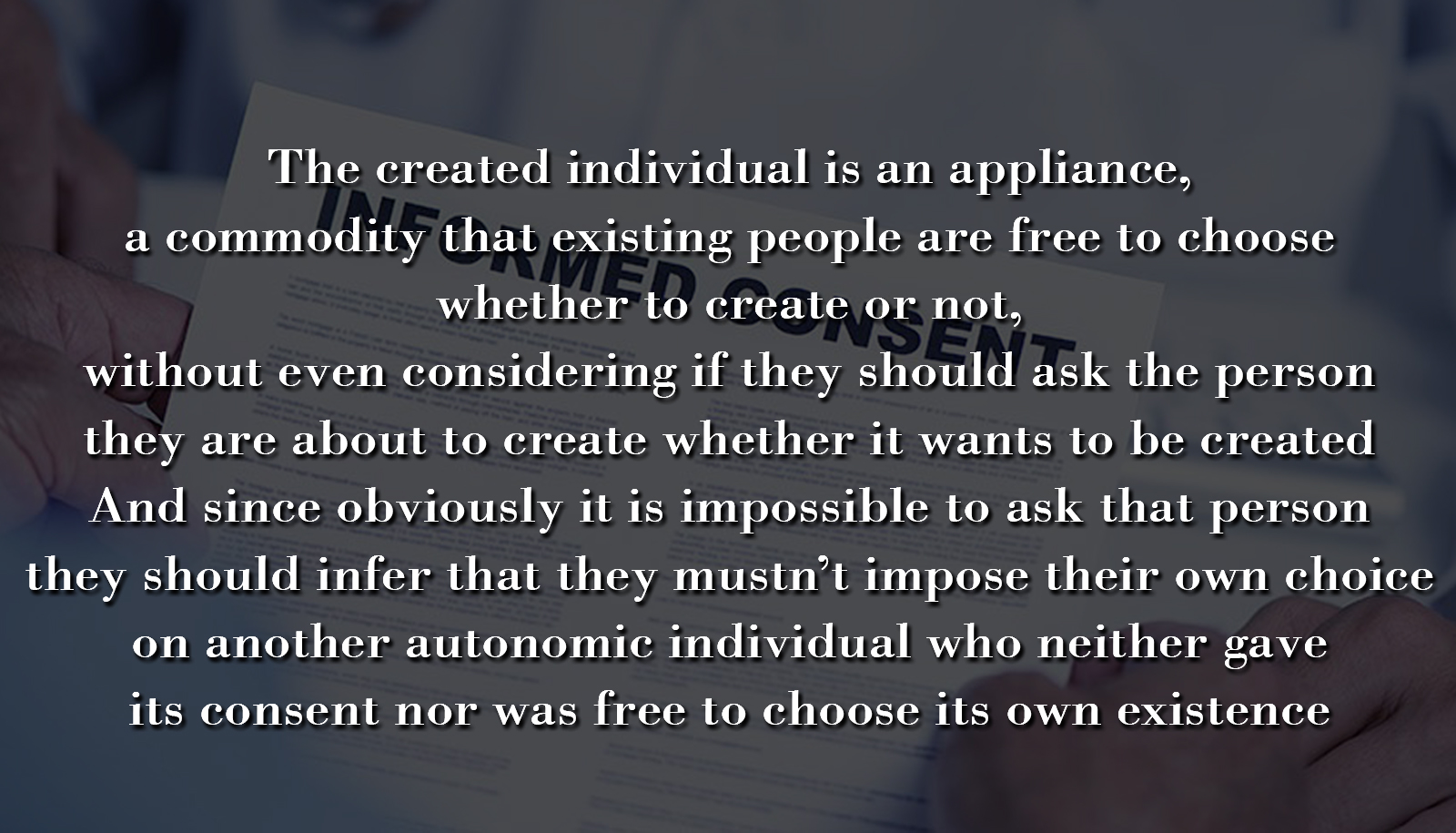
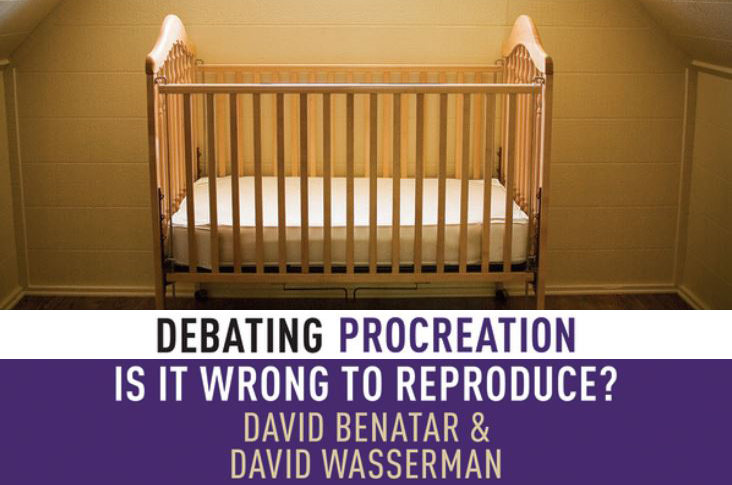

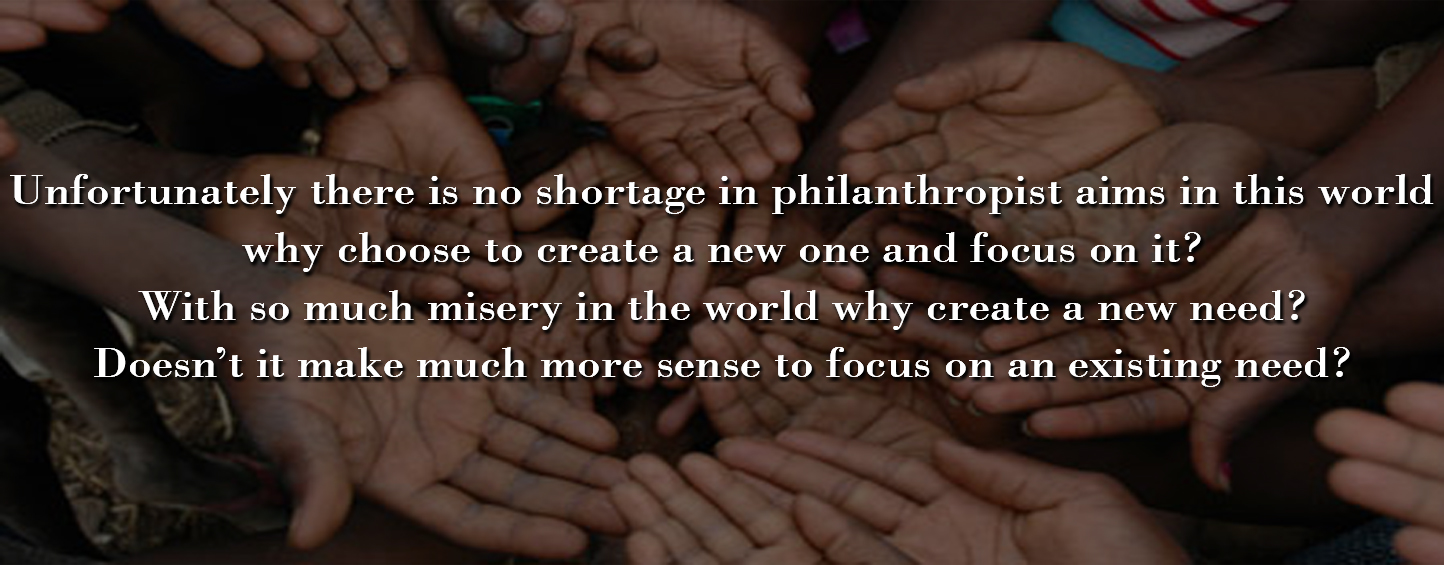
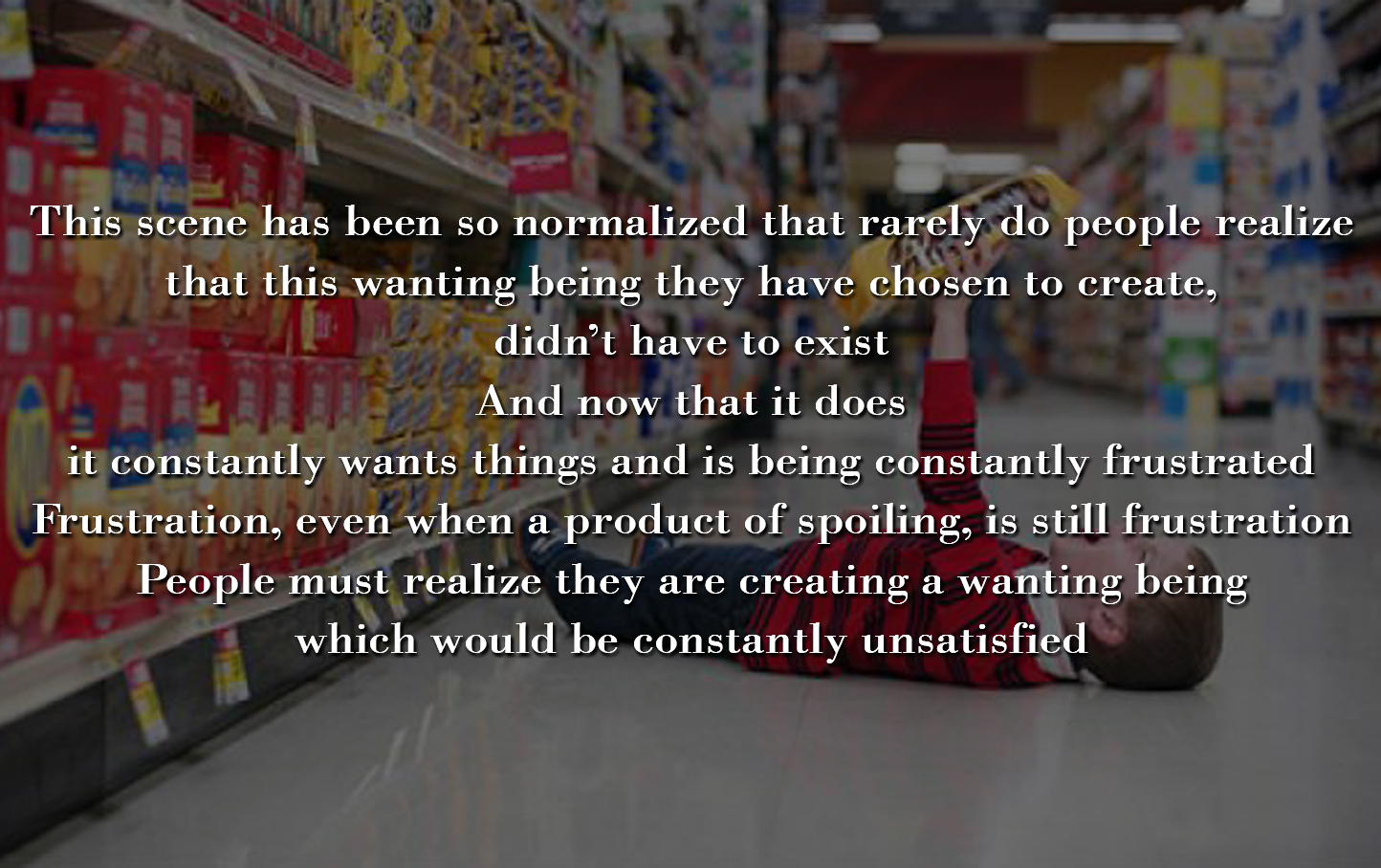
Recent Comments